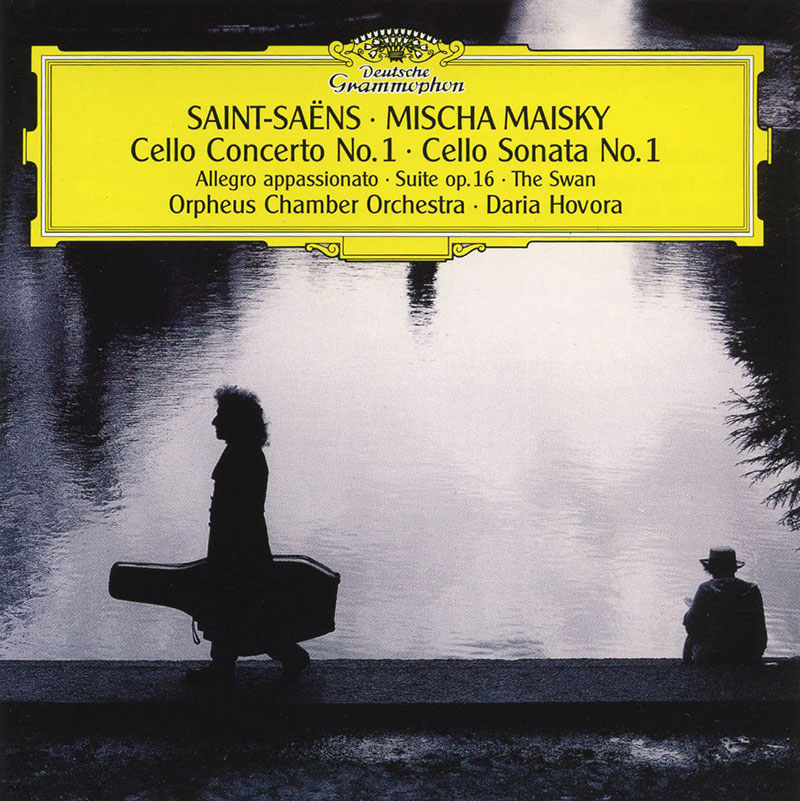Logowanie
Dlaczego wszystkjie inne nie brzmią tak jak te?
Chai Lang, Fan Tao, Broadcasting Chinese Orchestra
Illusive Butterfly
Butterly - motyl - to sekret i tajemnica muzyki chińskiej.
SpeakersCorner - OSTATNIE!!!!
RAVEL, DEBUSSY, Paul Paray, Detroit Symphony Orchestra
Prelude a l'Apres-midi d'un faune / Petite Suite / Valses nobles et sentimentales / Le Tombeau de Couperin
Samozapłon gwarantowany - Himalaje sztuki audiofilskiej
PROKOFIEV, Stanislaw Skrowaczewski, Minneapolis Symphony Orchestra
Romeo and Juliet
Stanisław Skrowaczewski,
✟ 22-02-2017
BARTOK, Antal Dorati, Philharmonia Hungarica
Dance Suite / Two Portraits / Two Excerpts From 'Mikrokosmos'
Samozapłon gwarantowany - Himalaje sztuki audiofilskiej
ENESCU, LISZT, Antal Dorati, The London Symphony Orchestra
Two Roumanian Rhapsodies / Hungarian Rhapsody Nos. 2 & 3
Samozapłon gwarantowany - Himalaje sztuki audiofilskiej
Winylowy niezbędnik
ClearAudio
Cartridge Alignment Gauge - uniwersalny przyrząd do ustawiania geometrii wkładki i ramienia
Jedyny na rynku, tak wszechstronny i właściwy do każdego typu gramofonu!
ClearAudio
Harmo-nicer - nie tylko mata gramofonowa
Najlepsze rozwiązania leżą tuż obok
IDEALNA MATA ANTYPOŚLIZGOWA I ANTYWIBRACYJNA.
Wzorcowe
Carmen Gomes
Celebrating the art and spirit of music - vol. 5 - Reference Songs
- CHCECIE TO WIERZCIE, CHCECIE - NIE WIERZCIE, ALE TO NIE JEST ZŁUDZENIE!!!
Petra Rosa, Eddie C.
Celebrating the art and spirit of music - vol. 3 - Pure
warm sophisticated voice...
SAMPLER - STS DIGITAL, Gregor Hamilton
Celebrating the art and spirit of music - vol. 2 - Love songs from Gregor Hamilton
...jak opanować serca bicie?...
SAMPLER - STS DIGITAL
Celebrating the art and spirit of music - vol. 1 - Leonardo Amuedo
Największy romans sopranu z głębokim basem... wiosennym
Lils Mackintosh
Celebrating the art and spirit of music - vol. 4 - A Tribute to Billie Holiday
Uczennica godna swej Mistrzyni
SAINT-SAENS, Mischa Maisky, Daria Hovora, Orpheus Chamber Orchestra
CelloConcerto No. 1 / Cello Soanta No. 1
- Mischa Maisky - cello
- Daria Hovora - piano
- Orpheus Chamber Orchestra - orchestra
- SAINT-SAENS
Mischa Maisky's rich, velvety tone and brilliant technique give all the works here an arresting, memorable quality. The recordings, too, are full and resonant and, in the concerto, the Orpheus players sound as passionately involved as the soloist; the tuttis lose all feeling of formality. (By comparison, the LSO for Isserlis lack intensity.) I was swept along by Maisky's performance until the third movement, where he takes the main theme very slowly, more Andante than Allegro moderato, then speeds up substantially for the virtuoso passages. Both Isserlis, and Fournier, in his fine 1948 recording, show how much more satisfying a performance can be without these extreme tempo variations. For the Suite, I think I'd prefer Maisky over the Naxos recording with Maria Kliegel, attractive and stylish though that is. Playing and recording are more vivid, with the Molto adagio tempo of the Romance beautifully sustained. Maisky's warmth and verve carry him through the Allegro appassionato and the Op. 36 Romance in fine style, but `Le cygne' is very disappointing — hold-ups (often big ones) on nearly every bar-line destroy the serenity. Though the Maisky and Isserlis discs contain several of the same pieces, there's a very different emphasis — Isserlis mostly with piano, Maisky with orchestra, so they only come into direct competition for the concerto and the sonata. The performances of the latter are very different, Maisky and Hovora bringing out the music's dark passion, Isserlis and Devoyon stressing classical refinement. I definitely prefer the Isserlis/Devoyon Andante — the different elements come together more persuasively — but for the outer movements it's more difficult to say; you really need to hear both. -- Gramophone [2/1999]
























